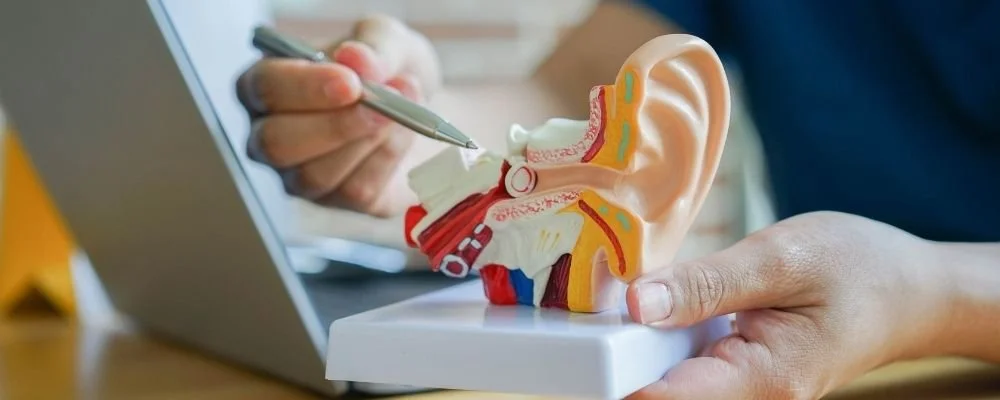5 Signs You May Need a Hearing Test
Hearing loss often develops slowly. Before it becomes obvious, your body gives signals.
Here are 5 signs you may need a hearing test, and why acting soon improves outcomes.
Why hearing decline often goes unnoticed
Hearing loss commonly starts with high frequencies (birds, beeps, consonants).
Because change is gradual, you adapt without realising it.
By the time you notice, the damage may already affect your social life, sleep, or cognition.
Early detection helps your brain adapt to treatments.
Sign 1: You ask “What?” or “Repeat that?” often
What it looks like
You frequently ask people to repeat themselves, even in quiet settings.
You catch phrases like “Sorry, can you say that again?” as habitual.
This happens with multiple people in different settings, not just one speaker.
Why it happens
Loss of clarity, especially in high frequencies, makes consonants hard to distinguish.
Your ears may hear sounds, but your brain can’t map them to words.
Over time, the brain stops tuning into quieter speech elements.
Sign 2: You turn up the TV, radio, or your phone’s volume
Typical pattern
You gradually raise volume over weeks or months.
Others complain it’s too loud.
You use subtitles more often—even in your native language.
Underlying cause
You may no longer hear soft, distant sounds (speech, background music) well.
To make up for missing parts of the sound, you increase the volume.
This compensates for your reduced sensitivity to specific frequencies.
Sign 3: Struggling in noisy environments
Scenario examples
Restaurants, parties, or public gatherings where others seem to understand easily.
You lean in, watch lips, or nod along, though you missed pieces of the conversation.
You find group conversations emotionally and mentally draining.
Why it’s a red flag
Noise masks speech. If your ear system is weaker, it cannot separate speech from background noise.
You expend mental energy to “fill gaps”, leading to fatigue.
Over time, you may avoid social settings to reduce effort.
Sign 4: You no longer hear certain everyday sounds
Sounds you might miss
Birds singing
Doorbell, phone ring, beep of microwave
Water running, alarm beeps, notification tones
The mechanism
High-frequency sounds tend to fade first.
Because you miss these subtle noises, you may assume the device is broken.
Their absence is a silent symptom.
Sign 5: Others say you speak loudly or shout
What you hear
“You don’t need to shout.”
“You’re speaking too loud.”
People step back when you talk.
Why is this significant?
When you can’t hear your own voice, you overcompensate by raising the volume.
You adjust your volume louder based on how others speak instead of your internal auditory feedback.
It’s one of the more obvious signs, but many dismiss it.
Bonus sign (risk factor): Frequent loud noise exposure
Though not a direct symptom, repeated exposure to loud environments worsens hearing. Examples:
Concerts, clubs, loud machinery or tools
Working in construction or manufacturing
Listening at high volume through headphones
If you do several of the 5 signs and have noise exposure, urgency is higher.
What happens if you delay testing
The brain adapts to degraded sound, making adjustment to amplification harder.
Social withdrawal may occur.
Cognitive load increases, potentially accelerating cognitive decline.
You miss the window when hearing aids or interventions are most effective.
What to expect from a hearing test
The audiologist will ask about your medical history, lifestyle, and symptoms.
You’ll wear headphones and hear tones at different frequencies and volumes.
Speech tests check how well you understand words.
Ear exam (otoscopy) looks for blockages or health issues.
Results identify which frequencies are affected and by how much.
You’ll receive tailored recommendations (devices, therapy, lifestyle changes).
Tips to preserve hearing health
Wear ear protection (earplugs or earmuffs) in loud environments.
Limit headphone/earbud volume (follow the 60/60 rule: 60% volume for 60 minutes).
Take quiet breaks from noisy settings.
Ask for regular hearing checkups, especially if you’re over 50 or at risk.

